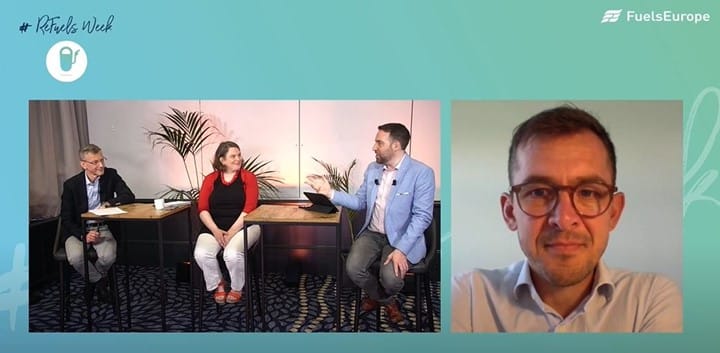#RefuelsWeek: How defossiling energy can protect thousands of jobs
How do we make sure that the green transition works with the economy and not against it? This question was the starting point for “A win-win situation for climate and jobs”, the fourth session of the webinar series organised by FuelsEurope during the Refuels Week, an initiative born to promote the role of low-carbon liquid fuels in enabling climate-neutral transport. The debate took place on 7 June and focused on how to ensure that the transition to climate neutrality in Europe does not result in higher social and economic costs. CLEPA was represented by Benjamin Krieger, Head of Government Affairs.
CLEPA highlighted the need for employing all the efficient technologies available, as well as climate neutral energy and fuels to achieve the climate goals. Electrification is a great solution, but it should be combined with other options that may suit best the needs. The focus should be put on defossilising the energy while keeping a technology neutral approach that supports technology innovation while building on European competitive strengths and maintaining employment.

On behalf of IndustriAll, the European Trade Union, deputy general secretary Judith Kirton-Darling outlined the current scenario, highlighting the complexity of the ongoing transition. The scale of the change to be faced is remarkable, making it essential to adopt an anticipatory framework to manage this vast and complex operation. There is the significant risk of social and economic fragmentation, especially if the internal combustion engine will be excluded a priori from the technologies available to combat carbon dioxide emissions.
Indeed, as the director of FuelsEurope Alessandro Bartelloni explained, in some respects, electricity is unbeatable, but in others, it cannot replace molecular energy in liquid or gaseous form. Also, it is easy to transform a refinery to switch from producing fossil fuels to sustainable fuels. These are high-tech, digitalised plants employing highly skilled personnel who can work on new, non-polluting fuel types. Conversely, if internal combustion engines were excluded, this highly skilled workforce would struggle to find new jobs, causing a regrettable dispersion of human resources and know-how.
All three guests also agreed on the importance of a European taxonomy framework to not become a straitjacket but to set the right goals while leaving room for the market and competitiveness to achieve them.
The event concluded on how crucial it is to not only focus on targets but also on how to reach them efficiently and at the lowest possible cost in social and economic terms.
Attachments
In: CLEPA News, Environment & Energy



